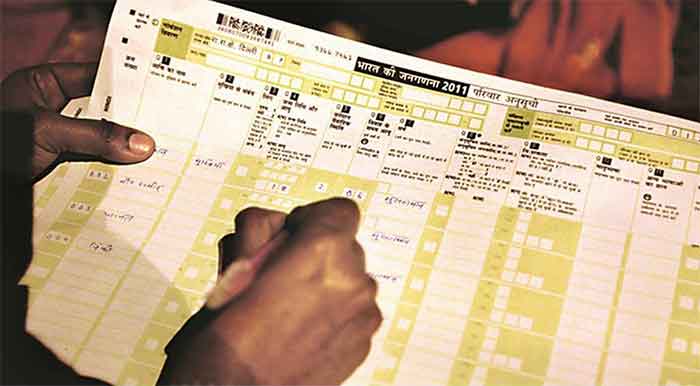
The debate on caste, not just OBC, census is becoming a serious political issue in the country. But the secular, liberal and left intellectuals–economists, sociologists, political scientists– are behaving as if they are a neutral force on this issue. Would they have behaved in the same way if the Government were to say that it would not do religion census as well? I am sure they would not. They would have filled the pages of newspapers, the TV channels, particularly the English ones, would have debated about secular and communal conundrum. They would have cried host and the social media would have filled the Indian minds about the conspiracy theories and how it would be an anti-democracy step. But on the question of caste census they behave as if they cannot take a stand. This is the reason why the Shudra/OBCs do not respond to their secularism discourse.
If the religion census were stopped, the Bengali and Odia bhadralok intellectuals, particularly, would have dug up the history of the census, of course, and beyond: why in a country of multi-religious society counting population on religious basis is important. They would have pretended as if they stand by minorities and would have said that numbers are very important to standby minorities based on accurate data.
Their silence about caste census speaks of the Dwija intellectual well known theory that caste census is part of ‘conspiracy of opening caste wounds, perpetuating the colonial legacy’. The caste census data in 1881 must have shocked the British rulers and re-shaped their understanding of the Dwija, particularly the strength of the Brahmins. Before the census were enumerated there was a possibility that the British policy makers considered the Brahmins as the majority caste across India. Because the Brahmins were only educated in all the regions. They were the main advisers and were part of the British bureaucracy. They were controlling Hindu major temples all over India. They were only the writers of all books that the British read. As very thinly spread caste from Kashmir to Kanyakumari and Gujarat to Bengal would speak in one tone and language. There was no single Shudra caste spread across India with the same name and with an educated background to interact with the British rulers. “A report on the 1881 census of British India says that it was “the first … Of the total Hindu population of 187.937 million, Brahmins constituted 13.73 …”1 That is about 7 percent of Hindu population. If seen in relation to the total population that includes Muslims, Christians and so on it would be much less. The British rulers also did not know that the Brahmins and Dwijas do not go for any productive work in the fields and also cattle grazing. They must have also come to know that the Brahamins do not allow the Shudra/Dalit/Adivasis to go to school and educate themselves.
Given the non-availability of rural and forest living Shudra/Dalit/Adivasi masses at their home during daytime in 1881 their enumeration would have been very very difficult. Contrary to that the Brahmins and other Dwija like Kayastas, Khatris, Banias and Ksatriyas must have been enumerated more accurately than other castes. Brahmins by then were more urbanized and all the time available in the city/town/village for enumeration unlike the cattle grazing, artisanal and land tilling masses. Brahmins were never part of the agrarian, artisanal and animal grazing people though they were cow worshipers. Home, temple and school, office were the main places where Brahmins were available. That kind of under the roof life would have made their enumeration easy unlike the Shudra/Dalit/Adivasi masses who work under the sky. Even then their population ratio within the Hindu society was just 7 per cent. But In 1931 (the last Indian census to record caste), Brahmans accounted for 4.32% of the total Indian population.2
This fall of the Brahmins in percentage terms is both because by 1931 better enumeration of other castes must have been done and also it is seen as against the total population. But within the Hindu population also it will be much less than 7 percent in the 1881 census.The British rulers, thus, learnt because of caste census that Brahmins who were seen everywhere in the top layers of Indian society actually constitute a small minority and they were benefiting from British education and state employment.
However, the Brahmin opposition to the British increased from then on because they exposed their minority human base among the population and huge control of spiritual, social, economic and political life of India. They had no sense of shame or guilt for exploiting the Shudra/Dalit/Adivasis. The British then worked out a school education system in the Government domain for all castes and communities. This was later attacked by them as a Macaulay conspiracy. Throughout Indian history any attempt by anybody for equalizing the socio-spiritual living of Indians the Dwija intellectuals said it was anti-Indian tradition. They projected any progressive step as a conspiracy against the whole nation.
They saw their unequal authoritarian existence in every sphere as nationalism. The Shudras/Dalits/Adivasis failed to contest them at any point of time in Indian history. They performed all the hard work for nation building and remained under the firm grip of Brahmanism. Even the liberal, secular, communist Dwija intellectuals did not get over that historical legacy.
Similarly if caste census are enumerated this year their actual number will come out, which will become a tool of understanding their control on the Indian state, civil society and religion. The secular and liberal intellectuals, who came from that background, whatever could be their political affiliation know this fact very well.
Highly educated intellectuals in foreign and Indian universities would consist of Roys, Benerjees, Mukharjees, Chatterjees, Sens, Boses, Patnaiks, Mohantys and so on. From Western India many Desais, Sirdesais, Bhagwats, and from middle country Chaturvedis, Dwivedis, Trivedis, Shastris, Sharmas, Varmas, Thakurs, Chopras, Guptas and so on . From the South they constitute Iyers, Iyengars, Sharmas and Shastris. Even those who write in the mainstream media come from that background. They all do not think that such names would reflect casteism, but they only reflect the secular heritage of their family history. They dislike any discussion on caste, reservation and caste census. If they discuss or write on those issues only to oppose those policy issues. When the entire Brahminic literature survives on hierarchical structures of caste, why does caste census generate fear, anxiety and anger among Brahmins in particular and Dwijas in general? Do they not know that the census should be enumerated to know all forms of identities– religion, gender, class, caste and race? Justice– spiritual, social and economic– should be achieved in every society on a fair and equitable basis.
Some of them have very high intellectual status in Euro-American countries. For example, Amartya Sen and Abhijit Banerjee as Nobel Prize winner economists have stature but popularity. But never spoke about caste census. The other very popular economists working in American universities, like Jagdish Bhagvati, Arvind Panagariya, Kaushik Basu, Raghuram Rajan, also seem to have no stand on caste census. Among sociologists, political scientists and historians there are Subaltern Studies scholars mostly living abroad. Their volumes were as silent about caste as the RSS books and documents were. Even now they do not want anything to say about caste census. What Subalternness is this? Are they silent about caste because Antonio Gramsci did not talk about caste culture? Or their Dwija roots blind folded their intellectual eyes?
No great Indian economist, sociologist, political scientist or historian worth the name before or after Ambedkar (who himself was an economist with a Columbia Ph.D and London School of Economics D.Lt) raised the question of social justice in post-colonial Indian developmental process. They kept on telling us that poverty alleviation will take away caste inequalities. The Marxist social scientists remained more Euro-centric than Europeans themselves. They repeatedly told the nation that once ‘class war’ is successful all evils of India will disappear. They went on telling that caste is no longer, rather, never a valid category of understanding India. Thanks to their Un-Indian vision they are a disappearing lot now.
The Shudra/OBC/Dalit/Adivasis understood the importance of numbers much better than all Dwija economists, sociologists and numerologists. Their productive fingers now, not only know how to count plants in the fields, cattle in the grazing meadows but themselves in every village and city. Is this awakening of the Shudra/OBCs anti-national or anti-developmental? Let Hindutva or left liberal social scientists tell us?
The RSS/BJP used the Shudra/OBCs as a muscle power force against the minorities and used them as vote power in 2014 and 2019 elections to come to power speaking in two opposite voices. The Shudra/OBC ministers in the party say the BJP is not against caste census. Dharmendra Pradhan to G.Kishan Reddy speak in favour of the caste census. Even Prime Minister Modi gave a positive signal by willingly meeting the Bihar all party Shudra/OBC leaders.
But an unnamed RSS leader says:
“that a census (meaning caste census) will inevitably reconfirm the numerical majority of the OBCs. That will overturn social equations and consign the upper castes (meaning the Dwijas) to a twilight zone of marginalisation. The RSS won’t accept it.”3
Which RSS is he speaking about? Is it that of Mohan Bhagwat and Ram Madhav?. But what about the Shudra/OBCs within the RSS? How long do they want to be used only as muscle or vote power?
What about Congress in this situation? It is at ideological cross-roads on many issues. Its experienced and aged leaders–foreign or Indian educated– and active policy makers, with Sonia Gandhi as president, are the same old Dwija intellectuals who have no roots in the voting masses, particularly the Shudra/OBC farmers and artisans. They read and write only about secularism, minorities and, at best, some sentences about Dalits. Their view on caste census is exactly the same as that of the unnamed RSS man. They avoided the issue even after Mandal reservation was put on the national map by the V.P. Singh Government. Thereafter the Congress Dwija economists, policy makers lead that party to their Shudra/OBC vote loss.
Only Modi and Amit Shah seem to know that so long as the Shudra/OBCs do not shift from the regional parties and the BJP to Congress they will not lose power. The Congress seems to have not learnt a lesson from the CPI(M) how that party was destroyed by the leaders promoted from JNU to politburo to leadership without having any grass root mobilization experience. If the Modi-Shah go for caste census Delhi may be in their hands for a long time to go. Let us wait and see!
Kancha Ilaiah Shepherd is a political theorist, social activist and writer. His well known books are Why I am Not a Hindu and Post-Hindu India












































